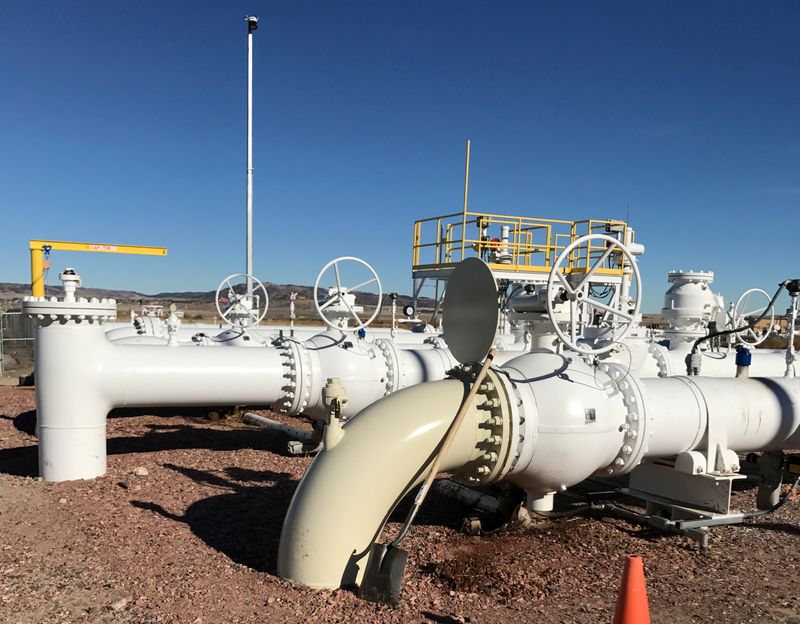By Liz Hampton
DENVER (Reuters) - Tallgrass Energy Partners will begin monitoring emissions, including methane and other greenhouse gases, on its Rockies Express Pipeline, making it the first U.S. company to measure and certify the environmental impact of operations on an interstate natural gas pipeline.
Natural gas producers, transporters and utilities are embracing carbon-reduction measures and third-party ratings to show investors and customers they are serious about reducing greenhouse gas emissions amid concerns over their environmental impact.
Tallgrass and carbon-measurement firm Project Canary this year plan to begin installing monitoring devices at compressor stations along the 1,700-mile pipeline to rate the environmental impact of its operations. The devices will help provide real time measurements of fugitive methane emissions, among other things.
"Buyers want assurances that natural gas is produced and transported in the most environmentally responsible way possible," said Matt Sheehy, president of Tallgrass.
Natural gas certification has been picking up steam in the past year among producers and utilities. Project Canary counts EQT Corp (NYSE:EQT) and LNG-project developer NextDecade among its customers. MiQ, another firm that applies measurements to help manage carbon emissions, has signed Exxon Mobil (NYSE:XOM) and Chesapeake Energy Corp (NYSE:CHK) to use its methodologies.
"This has been a missing link," said Project Canary CEO Chris Romer, of pipeline operators' role in emissions reduction. It is holding talks with more than a dozen other pipelines looking to monitor and certify the emissions footprint of their operations, he said.

The Rockies Express Pipeline transports up to 4.4 billion cubic feet per day of gas between northwestern Colorado and eastern Ohio. Tallgrass owns a 75% stake in the line, with Phillips 66 (NYSE:PSX) holding the remaining share.
The Colorado School of Mines will partner with Project Canary for the certification process.